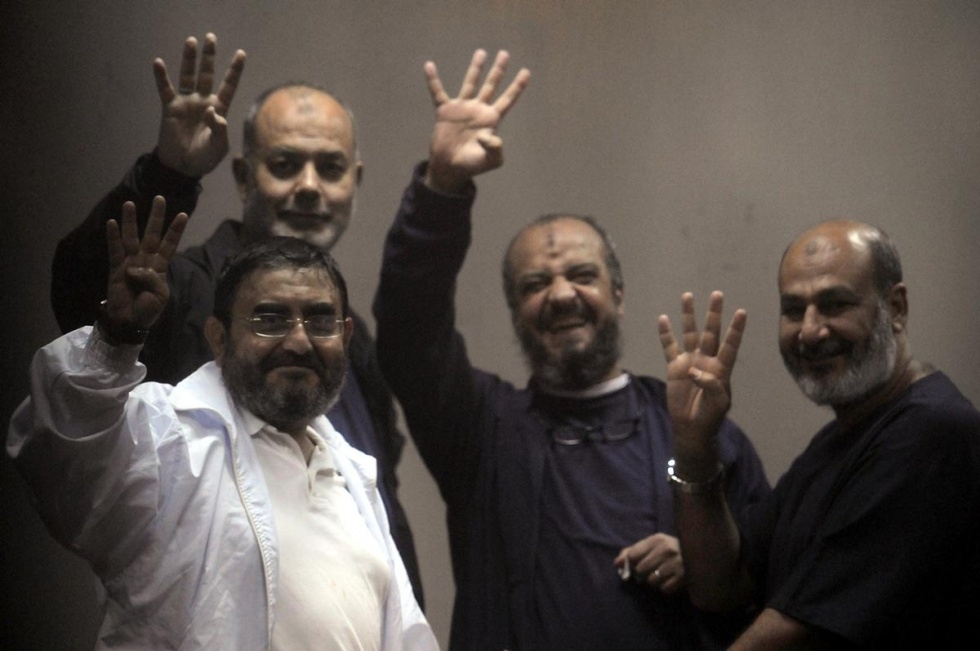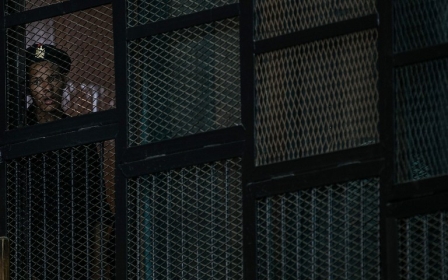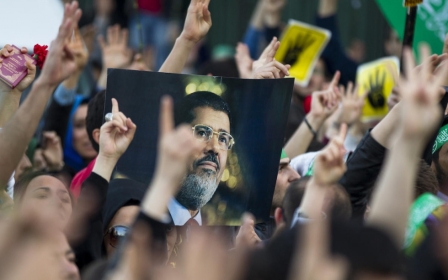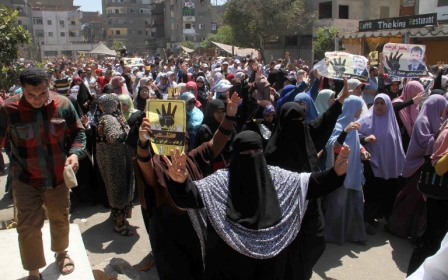Muslim Brotherhood leader detained in Egypt

Egyptian security forces detained senior Muslim Brotherhood leader Mohamed Ali Beshr early Thursday, a security source said.
"Beshr has been detained upon an arrest warrant issued by the prosecution on charges of incitement of violence and joining an outlawed group," the source in an Egypt security directorate told Anadolu Agency.
The source linked the detention of Beshr, a former local government minister under ousted president Mohamed Morsi, to calls by Islamists for an "Islamic revolution" on 28 November.
The pro-Morsi National Alliance for the Defense of Legitimacy (NADL) termed the detention as part of a "fierce campaign against its components."
"Beshr's detention is undoubtedly a new loss to the Egyptian political scene," the group said in a Facebook statement.
"It, however, will not affect the bloc's [NADL] choices or its determination to undermine the coup," it added.
Morsi was ousted by the military in July 2013 following massive opposition protests against his rule. While Morsi supporters describe his overthrow as a "military coup", opponents term it as a "military-backed revolution".
Ever since Morsi's overthrow, Egyptian authorities have maintained a harsh crackdown on his supporters, detaining thousands and killing hundreds, branding the group a terrorist organisation last December.
Mohamed Soudan, a foreign representative of the Muslim Brotherhood’s disbanded Freedom and Justice Party (FJP), confirms that the reason behind Beshr’s arrest at this particular time is linked to the planned protests.
“The state is worried about the 28 November protests and by detaining Beshr, it is believes it is sending a strong message to Muslim Brotherhood members who may be considering participation in the protests on the day,” said Soudan.
Beshr was the last FJP leader in Egypt who has not gone underground or left the country, after Amr Darrag, former minister of planning, fled to Qatar several months ago.
Soudan said however that the Brotherhood has consistently carried out protests, especially on Fridays and therefore there is nothing new about the 28th.
“We are always active on Friday’s anyway. It is the other groups which don’t regularly demonstrate who will be joining us on that day,” he explained.
The first parliamentary elections after the 2011 uprisings were held on 28 November, a few days after the Mohamed Mahmoud. The six-day Mahmoud Mahmoud events that began on 19 November 2011 mark a significant rift between revolutionary groups who remained committed to opposing the state, and those who decided join forces with the military, namely the Muslim Brotherhood.
In a statement released on behalf of the Muslim Brotherhood Thursday, the group said it acknowledged previous mistakes and called on all oppostion forces to unite.
The parliament that came out of the 28 November 2011 elections was annulled, then reinstated, then annulled again. It was the parliament in which the FJP won most seats, followed by the Salafist al-Nour Party.
Ashraf el-Sherif, lecturer in political science at the American University in Cairo, said the Muslim Brotherhood along with Salafist groups - which he calls the revolutionary Islamists, are pushing for the mobilization of their members on 28 November.
According to Sherif, the revolutionary Islamists are young revolutionaries forming an extremely fluid and mobile entity, including members of various organizations that have participated in the Egyptian uprisings over the past three years.
Among those groups are the Salafi Front – a Salafitst organization founded after the 2011 uprisings, and supporters of the former Hazem Abu Ismail – a Salafist politician who ran for president in 2012 and is now in detention, he told MEE on 19 November.
New MEE newsletter: Jerusalem Dispatch
Sign up to get the latest insights and analysis on Israel-Palestine, alongside Turkey Unpacked and other MEE newsletters
Middle East Eye delivers independent and unrivalled coverage and analysis of the Middle East, North Africa and beyond. To learn more about republishing this content and the associated fees, please fill out this form. More about MEE can be found here.




